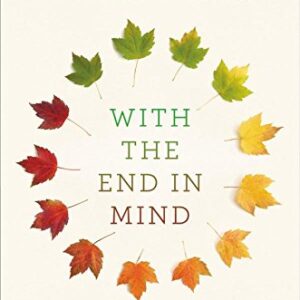These Precious Days
These Precious Days by Anne Patchett is the sixth and last book in our book group’s “Aging and Mortality” series.
 Besides Patchett’s collection of essays, we’ve read The Gift of Aging, which profiled people who were enjoying their older years and living them to the fullest. Basic message: don’t dread getting older, make the most of it.
Besides Patchett’s collection of essays, we’ve read The Gift of Aging, which profiled people who were enjoying their older years and living them to the fullest. Basic message: don’t dread getting older, make the most of it.
There were three books in our series by physicians: With The End in Mind by Katherine Mannix, Atul Gawande’s Being Mortal, and The Lost Art of Dying by Lisa Dugdale.
These books by physicians had two things in common. One, all reflected on their experience of death and dying in light of extensive medical practice. And, two, all three were critical of their own guild — physicians — and expressed great doubt about the medicalization of death, and of one result, that death now usually occurs in a hospital.
Reading their descriptions of how a natural process, dying, has been increasingly treated as itself a disease with heavy medical interventions, brought to mind the parallel of birth. In the time when my parents were having children, birth was medicalized. It was moved to the hospital, accompanied by sedation of the mother, and exclusion of family/ community. The image of the anxious father in the waiting room, pacing (while chain-smoking) became a stereotype, or maybe a cartoon.
By the time my wife and I started having children it was all about “natural child-birth.” We husbands joined our wives at childbirth and Lamaze classes, where we were prepped to serve as “coaches.” Breast-feeding made a comeback. And hospital birthing rooms were transformed into something much more home-like, providing access to family members.
Now, it seems that the generation that worked to de-medicalize birth, is starting to push for something similar for death.
With this series under my belt I resolved to be more intentional and plan-ful for my own dying and the things that go with it (how remains are handled, rituals at and after death, etc.). In some ways, however, such planning is odd. Death and dying seldom conform to our plans or schedules. It is also a bit out of character for me to try to plan things out in advance. For better or worse, I’ve been pretty much in the school of “letting life come to me,” as opposed to having a “life-plan.” So, we’ll see. Maybe I’ll make good on my intent, if not to plan, then at least to formulate preferences and share those with those nearest and dearest to me.
Our series also included a novel, Wallace Stegner’s Crossing to Safety. It is the story of a life-long friendship between two couples. It concludes with the dying of the dominant character in the foursome, Charity. She plans her dying with an efficient zeal, having resolved “to do this right.” Her story raises a question: where’s the line between making reasonable plans (putting your house in order, expressing preferences etc.), and trying to maintain, or exercise, complete control?
That question seems to me at the heart of the matter for many of us and for our society. It is certainly wise to learn about dying, whether from our own experience with people who are dying, or under the tutelage of a palliative care physician like Katherine Mannix. Mannix is most helpful in showing readers that death can be a process with certain predictable steps and stages. Moreover, it is one that can be, and often is, peaceful, not gruesome. Instead of hiding death away in hospitals and so coming to fear it more, might we befriend death, prepare ourselves, and reclaim the wisdom of generations and cultures for whom death was more a part of life.
That said, being modern people living in a high-tech society, the tendency for us is to try and control what cannot, in the end, be controlled. This often leads to the soaring of health care costs in the last three months of people’s lives.
Perhaps birth again provides an analogy. None of us were in charge, in control, of our own birth. We relied on others. Those of a faith or spiritual bent might say we relied on gracious powers not our own. As at birth, so perhaps in death, might we also — in an ultimate sense — rely on such gracious powers not our own?
So, face your mortality, plan what you can, accept what you can’t control. And then, get on with living.
![Anthony B. Robinson [logo]](https://www.anthonybrobinson.com/wp-content/themes/anthonybrobinson/images/logo.png)
![Anthony B. Robinson [logo]](https://www.anthonybrobinson.com/wp-content/themes/anthonybrobinson/images/logo-print.png)